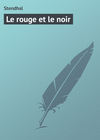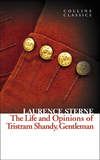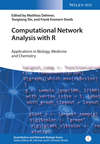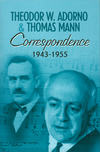Kitabı oku: «Wulnoth the Wanderer», sayfa 13
"She shall suffer no harm while I live," answered Guthrun; and Wulnoth waved his hand and departed, and went back to tell the King how Edgiva was held prisoner. And Guthrun took Edgiva and gave her into charge of his wife, and set a guard at the door of her tent, and so kept he his word to Wulnoth.
Now, this is how the host of the Danes were defeated at Ethandune, and how the field of slaughter was left to the Saxons, and this is how Edgiva was seen by Wulnoth in the Danish camp, and how Wulnoth challenged Hungwar to holmgang with him, and Guthrun promised to protect Edgiva the Beautiful.
CHAPTER XXIII
How Hungwar was slain, and the Danes became Christians
Now, on the morning following the battle, Wulnoth rose and donned his war gear, and took his shield and his axe; and he girded on the great sword which he had found amongst the ashes in ruined Lethra, and set forth for the Danish camp; and with him went the King, and many a thane, and a great following of the soldiers.
And to meet them came Guthrun and his holdas, and the Danish vikings; and a truce was proclaimed, and death pronounced upon any man of either camp who drew sword or made brawl that day.
And with Guthrun was brought Edgiva the Beautiful, guarded by the vikings, and as the prisoner of Hungwar the son of Regner Lodbrok.
And Guthrun greeted the King as one brave soldier should greet another, and he said —
"O King, thou who wast brave enough to come alone to my camp, had I found thee then, surely I had slain thee; but if thou come to-day, thou shalt be my guest, and with my own life will I defend thee."
And Alfred answered him with courteous words, and said that could they only be at peace, they might be good friends, and feast together often.
Then did Osric stand forward, and make proclamation, and say that Wulnoth the Wanderer declared Hungwar the son of Regner Lodbrok to be nithing and coward, and slayer of bound men, and torturer of women and children, and that he challenged him to battle alone, with none to help either. And this was to be the condition of the fight – that if Hungwar conquered Wulnoth, then he should have his life to keep or to take as he chose, and he should receive again the Raven Banner, and Edgiva should be his to sell or to keep. But if Wulnoth conquered, then Edgiva should be given back to freedom to do as she list, and Hungwar's life should belong to Wulnoth.
And the Danes and Saxons said ay to this, and swore to observe the conditions; and then all men drew back, and looked on breathlessly, and the two champions in their armor, and holding shield and axe, advanced and stood alone. And Wulnoth said —
"At last, Hungwar! At last we meet, and I have lived for this, these many years."
"And thou wilt rue it forever after," was the grim answer. "With this axe will I slay thee."
"Seest thou this sword, Hungwar?" laughed Wulnoth. "I picked it from the ruins of Lethra, and I have kept it for this day. It has wearied waiting for a song to sing, and thou canst guess what song that will be, and whose it will be. So now let us make an end of the matter, for speech is for women, and deeds are for men."
So they drew near, and all there wondered how this fight would go. For though Hungwar was older than Wulnoth, he had the strength of ten; and his great muscles stood up in masses upon his arms, and with his grizzled hair and flowing beard and moustache, he looked like Thor himself in his might.
And from his parted lips his teeth showed yellow and black, like fangs; and his bloodshot eyes rolled angrily; yet deep in his heart was there a black fear, for he dreaded Wulnoth more than a score of champions.
And the Wanderer looked strong and mighty, and his face was full of joy light; for was he not fighting for the freedom of his Princess, and now avenging the wrongs done to her brother, and her father, and his own father and mother?
"Art ready, Hungwar?" he asked, and Hungwar growled, "I am weary of waiting," and smote at him a mighty blow, that seemed as if nought could turn it aside.
But Wulnoth caught it on his shield; and then he struck in turn, and Hungwar caught his blow and was unharmed.
Then like circles of light did the axes swing and play, and the blows fell fast, and the shields groaned and shivered; and at last Hungwar's split in twain, though it was of stoutest oak, and lined with triple leather, and studded with massive bosses.
And when Wulnoth saw that, he swung his axe upwards with all his might, and cut clean through the handle of Hungwar's weapon, as he had cut through the handle of his mace in the long past; and then he cast aside his own axe and shield, and drew the great sword with the blue-veined steel blade; and he laughed aloud, though his breath came in deep gasps, so hard had he labored.
"Now, Hungwar, now we have finished this child's play with shield and axe; now draw thy sword and let us have a good song."
But Hungwar never answered; only he looked into Wulnoth's face with eyes of hate, which were yet eyes of fear; for he who had never feared death, now feared, not the dying, but the man by whom death was to come.
"The maiden will be freed," said the vikings to each other. "There is a shadow on the spirit of Hungwar, and the Valkyres tarry for him."
And Hungwar drew his sword and advanced, and now it was a man's game, indeed; for Hungwar's shield was broken, and Wulnoth had cast his aside, and the great blades must be sword and shield alike.
They clashed together, and the sparks flew as from a smith's anvil; and each champion strove, his eye fixed on his foe; and each knew that death was near.
"By Thor!" growled Guthrun, "'t is a mighty fight, and one that it does a man good to see. They are champions both." And to that a holda said —
"Ay, for Hungwar is fighting for life, and Wulnoth is fighting for love; and methinks that love will win."
And presently Hungwar's sword was smitten from his hand, and all looked for Wulnoth to make an end. But he cast aside his own sword, and with his bare hands he gripped his foe; and they two strained and swayed in their efforts; and Hungwar grinned in rage to think that Wulnoth was putting him to shame by thus refusing to take advantage of him; and in their struggling the berserker rage came upon him, and he bent forward and gashed Wulnoth's cheek with his fangs, crying —
"A mark for a mark, Wanderer."
"And a dog's death for a mad dog who bites," cried Wulnoth angrily; and he put out all his strength, – the strength which Osth the giant had taught him – and he squeezed and squeezed, and Hungwar gasped, and smote blindly with his fists, and his lips parted, and the foam came from them, and it was tinged with blood.
And Wulnoth squeezed yet harder, and the muscles gave, and the great bones yielded, and the ribs snapped; and Hungwar gave a gasp and became limp, so that Wulnoth cast him helpless to the earth, and knelt beside him.
"There, son of Regner!" he cried. "I have beaten thee with but my bare hands. Now dost thou yield to me and sue for life?"
"Thus do I yield," answered Hungwar; and he raised himself and he plucked a knife from his girdle where he had hidden it, though they had agreed that they would wear no daggers, and he struck a bitter blow at Wulnoth.
The Wanderer sprang back only just in time, and even so the knife left a crimson trail on his brown arm; and he seized his sword from where he had flung it down.
"I swore to slay thee with this," he cried; "and yet but now I thought to spare thee, seeing that I have shamed thee who hast bitten like a dog and stabbed in secret like a nithing. It is thy fate, and thou shalt have it. Die, Hungwar, and go to thy brother. This is for my father and mother, and for Edgiva and Guthred, and for their father, the King of Lethra. Thus is the debt paid and the story ended." And with that he smote, and Hungwar the mighty viking lord fell back slain.
Then did Alfred speak with Guthrun and ask him whether he would yield; and Guthrun said nay, but that he would go back to his camp and make the best stand that he might.
And Edgiva the Beautiful was set free; and she thanked Guthrun for his kindness, and went back with Wulnoth and the King; while the vikings took up the body of Hungwar and buried it nigh that place, and raised a mound over it, and sang his death-song with dark and gloomy hearts.
Now, back in his camp, Guthrun thought dark thoughts, for his heart was heavy, and he saw not what to do. And the Saxon King placed men all round, so that none might come in and none might go out; and so for a fortnight did things stand, and there was no food amongst the Danes, and they tasted of the hunger which they had so often made others endure.
Each day did the Saxon King send and ask them whether they would yield to him, and each day they sent back an answer that they would not. But Alfred made no attempt to attack them, for he knew that hunger must do its work in the end.
And at the end of that fortnight Guthrun called a great meeting of all his warriors, and asked them what should be done —
"We wait in vain for aid," he said, "and this Alfred grows in power each day. Men have wearied of our cruelty and hate us for our deeds; and methinks sometimes that I hate myself for having taken part in some things that have gone. Now, what can we do? We can stay till hunger slays us – but that is not a warrior's death."
"We can go forth sword in hand and die like heroes," said one holda; and the others nodded.
"That is a hero death," Guthrun said, "but it is death, and life is sweet."
"We may not go back to the Northland with this shame tale," said another. "Landless and nameless should we then be, and all men would scoff at us."
"This England is a fair land, and plenteous," said Guthrun, "and here it would be good to stay."
"And here we cannot stay, unless it be in the death-sleep," was the reply he received.
"Softly," he replied. "Here we can abide as Alfred's thanes. If we swear obedience to him, he will give us land, and we can live in peace; and that is better than this perpetual slaying and harrying, and better than being slain."
Then the holdas were silent, and they pondered; and at last one said gravely —
"Now, Guthrun, the matter is thus. Alfred may do as thou sayest if we are Christians; but Alfred will not do so if we are worshippers of our gods. For myself," and he laughed bitterly, "I care little what gods I worship, and the gods of our land have failed us."
Now again all the holdas bent their brows and thought. And Guthrun spoke and said that long he had pondered this thing; and that he felt that the gods of the Northland were no gods, but only the creatures of sagas; but that the Lord Christ was a God indeed, who had been on earth amongst men, and had been spoken with.
And he told them how the maiden Edgiva had spoken with him concerning the matter; and how she had said that Wulnoth the Wanderer was a Christian. And he had determined to abide by the issue of the fight; and to say that did Wulnoth conquer, then the Lord Christ was the true God; and that if Hungwar conquered, that the gods of the Northland were the mightier.
"Ye know how the fight went," he said – "how Hungwar was shamed, and broken, and slain. To my mind, the Christians' God is the true God; and if Alfred will but make terms with us, and accept our service, I, for my part, am right ready to accept the faith of this land and remain here in peace."
Then rose one old graybeard of a warrior, and he spoke, leaning on his axe, and his voice was deep and full, and he said —
"What is life, O holdas? We know not. Nor know we what death is, whether it be a beginning or an end. Whence come we? We know not; nor know we whither we go, beyond the wild dreams of the ancient times. 'T is as when we sit around the welcome fire in the dark winter, and without the tempest roars. Lo, through the window a little bird comes, storm-driven and nigh perished; and for a little space it flutters in the light and warmth, and then flies out into the darkness again. So are we. For a little space we are here – we came from a darkness of which we know nothing; and presently the death-song is sung, and into the darkness we go again. Now, O holdas, if this Christian creed can tell us aught of the darkness, and make our pathway light, then I say it is a good religion, and one for men to think of; and I for one say Skoal to the Lord Christ if this be so."11
Long and earnestly did the Danes ponder; and finally Guthrun himself went to King Alfred, and spoke with him, saying that for a man to change his religion simply to save his life was a poor thing, and that he and his must know what they did, ere they accepted the Lord Christ for their God.
And then did the King rejoice, not only because he was glad that the Danes should become Christians, but also because it helped him from a hard problem. For, though he had conquered the Danes, he saw not how to utterly make an end of them and drive them out; and if they would stay and be his servants, then they would be of help to him indeed.
So he talked long with Guthrun, and he sent priests and learned men to converse with the holdas; and the end of the matter was that Guthrun and all his host said that they would put aside their gods, and become Christians.
And then there was rejoicing throughout the land; and on one day the host were baptized, and Wulnoth and Guthrun at the same time, and King Alfred became their godfather and sponsor; and together did they kneel and receive blessing, and swear to live to the honor of Christ the Lord.
Then did King Alfred give broad lands to the Danes; and those lands in part which were most open to attack from other invaders. East Anglia and part of Mercia did fall to their lot, and in the very place where they had carried fire and sword and slaughtered King Edmund, did Guthrun build churches and walk in God's way.
And these lands which the King gave to Guthrun, together with the land of Northumbria, became known as the Danelagh; and so it continued for many years.
And of Guthrun but little more is said; only this, that during the rest of his life he faithfully kept his promise, and never rebelled against Alfred the King, but ruled his people wisely, and was the King's liegeman and friend.
Now, this is how Wulnoth went holmgang with Hungwar the Dane, and slew him, and set Edgiva the Beautiful free; and this is how Guthrun and his host turned to the Lord Christ, and dwelt in the Danelagh.
CHAPTER XXIV
How Wulnoth met with Guthred again
Now, after these things Wulnoth pondered long in his mind, for he was anxious to set out again to seek Prince Guthred if still he might be alive, and yet he knew not where, in all the wide world, he should seek.
Nor could Wyborga help him, for now she was very old and feeble, and she lived in one of the holy houses, and rarely saw strangers.
But once Wulnoth saw her and asked her whither he should go; and Wyborga told him to wait patiently and to take the first duty that should come, and then the way should be revealed to him.
"Indeed, my Princess and sweet love," Wulnoth said to Edgiva when they talked of this thing, "I am rather tried about this matter. In the past thy brother put this promise upon me and I gave it right willingly; but here from boyhood to manhood have I grown, and I do not even know if he may be alive. I am minded sometimes to give up this, and to take the joy which thou dost hold out to me, if still a royal princess will marry one who is nameless."
"Now, nameless!" laughed Edgiva proudly. "Whose name is better known than that of Wulnoth; and has not the King given thee broad lands for thine own?"
"And I am going wandering again, and leaving them for any to do as they like with."
"Nay, thou hast friends in plenty, who will look to thy possessions if thou art away. My rede is this, Wulnoth; wait till the next duty comes, as Wyborga has counselled thee, and then, if nothing comes of it, I will say that thou hast searched faithfully, and that thou canst, without shame, rest from thy labors, as from a hopeless task."
"So be it, dear love," Wulnoth answered. "Thou hast never counselled me wrongly yet, and by thy rede will I abide."
Now, not long after this the King sent to call Wulnoth to his side, and he spake to him and said —
"Now, Wulnoth, my faithful friend, I have a task for thee." And Wulnoth said gleefully —
"That is good hearing, King, for a man grows rusty quickly if he be not at work."
"Little fear of Wulnoth growing rusty," laughed the King, "for he is forever anxious to be doing. But listen, friend. This is the burden of it. Thou knowest that in Northumbria there have ever been troubles, for the people there quarrel amongst themselves, Northumbrians and Danes together. Now of late, Halfdane – ah! thou knowest him?"
"Right well, King," answered Wulnoth grimly. "Well, what of him?"
"This Halfdane gained all power in Northumbria, and he and his barbarians ruled as with rods of iron. Now tidings have come that Halfdane is dead."
"Dead!" cried Wulnoth. "So much the worse! I thought perchance that it was to slay him thou wouldst have me go."
"What a warrior art thou, Wulnoth! thou wouldst go against a host and laugh at it! Nay, Halfdane is dead – slain by one of his own holdas in a drunken brawl. Now the people of Northumbria are divided and have no leader. The Danes have none they can place at their head without endless quarrels following, and the Northumbrians have no king either. Now, this is my desire, that thou speed north to Bishop Eadred, and urge him to seek for a chieftain to be their king – one who will be of the Christian faith, and who will be true to me so that I have no cause to fear war in the north.
"Mercia has acknowledged me, and the Welsh are content that I should be their champion against the Danes, from whom they have suffered much. Cantua has no power now, and East Anglia is held by Guthrun for me. London welcomes me, and if the North be but friendly, then all England will be as one, and we can bend all our thoughts towards resisting any fresh attacks from the Danes – for more are certain to come ere long."
"So long as there are vikings in Denmark, and ships to sail the sea, they will come," answered Wulnoth. "Well, O King, I will do thy bidding and seek out the Bishop."
"Methinks," said the King slowly, "I might do worse than try to have thee made king there." But to that Wulnoth answered quickly —
"Nay, nay, Alfred, that may not be. I am no kingly man. I should rule by hard blows, and have no head for the business of state. Each man to his own trade, O King, and mine is fighting – not ruling and law making."
"Perchance thou art right, Wulnoth," the King answered. "Thou art wise at any rate, for 't is no light task to be a king."
"And no king do I desire to be," answered Wulnoth; and then he went in haste and bade adieu to Edgiva, and saddled his horse and started off with no better company than his sword and his axe, and his good shield slung at his back.
And from Wessex he rode northwards into Mercia, and there he met with King Guthrun, who had gone thither on business from East Anglia; and with the Dane he tarried a day and a night while his good steed rested.
Now, Wulnoth thought that perchance Guthrun might know something of what became of Guthred, and he asked him if he had ever heard the sons of Regner Lodbrok speak of the matter.
"Ay," answered Guthrun, "and I have often thought that it was but a poor thing to sell a lad, and a king's son, into slavery, for that is what they did. I know not of a certainty, but I heard that the boy was sold to a Danish holda, who soon afterwards sailed for England in the days when the first invasion was. That is all I know. Most likely he has died long since."
"I fear that it must be so," sighed Wulnoth, and his heart felt sad as he thought of a king's son sold into such slavery. But then he thought of what Wyborga had said – how she had prophesied that he and the Prince and Edgiva should all meet again, and the Prince should reign in another land; and that seemed a very hard saying to him.
Well, after bidding farewell to Guthrun, Wulnoth resumed his journey and rode northwards; and everywhere he saw the tokens of the bad times that had been, for the land lay desolate and lonely, and there were no people to till it. And in those fields where the grass grew darkest and longest he knew that the war game had been played, and that the grass grew because men lay buried beneath.
For a great part of the way his road led through vast forests, of which many abounded in England in those days, or across wild and desolate plains and over steep rocky hills; and so he journeyed through the realm of Mercia and came at length into the confines of Northumbria. Here the signs of cruel war were even more frequent, and he passed whole towns which were only deserted, smoke-blackened ruins now, where still the bones of men lay, picked clean by wild dogs or wolves.
Thus his road led, nor was it without adventure that he journeyed, for twice was he attacked by masterless men, and had to swing his axe and deal lusty blows ere he could pass on.
But such things troubled Wulnoth little, for the robbers were but half-hearted, as every one appeared to be, and trouble and dismay seemed everywhere.
"Now," thought Wulnoth to himself, "in sooth the King is wise. It would be a good thing to have a wise ruler here – one who would bring things to order again and lay the land under the plough. 'T is a shame to see it all idle like this, and makes a man feel that the war game is evil, and not good, no matter how it seems in the heat of the fight."
For two days Wulnoth rode, asking for tidings of the Bishop, and hearing from those who cared to return a civil answer – and that was not all – that he was still farther northward, seeking to lead the people to Christ.
Now it chanced, as he rode forward through a wood, that he suddenly heard the sounds of strife, and, putting spurs to his horse, he galloped forward, guided by the sounds, and came upon four masterless men – black-haired Danes every one – who had surrounded a man and were seeking to slay him, while he, with his back to a tree, flourished a long staff and kept them at bay.
"Hallo, nithings! rascals!" thundered Wulnoth as he came upon the scene. "What, four to one, and he unarmed! Shame upon you! If you want to play that game, here is one who is ready for it." And with that he smote one knave a lusty blow and sent him sprawling, while the man cracked the pate of another, and the remaining pair ran away as fast as their legs could carry them.
"Thou art come in good time, friend," the man said, leaning on his staff and gazing at the Wanderer; and at the sound of that voice Wulnoth started and stared anxiously.
Poorly dressed was this man, and his brow was careworn, and around his neck he wore a thrall collar; but for all that, and for the many years which had passed, Wulnoth knew him – his heart went out, and recognized, and he felt, with wonder and thankfulness, that Wyborga's words had come true, and that he had found his friend the Prince.
"Thou art welcome, friend," he said; "by what name art thou called?"
"By the name of Gurth," was the answer, and Wulnoth laughed —
"That may be, but there are some in the world who know you by another name and would call you, not Gurth the Thrall, but Guthred the Prince."
Then did Guthred stare, and pass his hands across his brow, and say —
"Who art thou, stranger, who callest me by a name now long forgotten – so long forgotten, indeed, that it has almost passed from my memory?"
"Who am I?" cried Wulnoth. "I am one who made a promise and has been all his life trying to keep it – and now has found the chance. Guthred, my brother and my Prince, have you forgotten Wulnoth?"
"Wulnoth!" cried the other, trembling with emotion. "Wulnoth! Thou Wulnoth! Nay, I can see now. I can see the same bold yet kindly eyes, the same strong form! Wulnoth, my friend, my friend, at last thou hast come to cheer me in my loneliness!"
And then did these two embrace, and, though they were men grown, they shed tears. And they sat down side by side, and allowed the two wounded thieves to slip off, for, as Wulnoth said, they owed them a kindness, since had they not attacked Guthred he would never have found him.
And Wulnoth told all his story of his journeyings, and of the death of Hubba and Hungwar, and of how Edgiva was with Alfred the King, and old Wyborga still lived, though she was feeble and old. And Guthred told him of his sorrows and trials, and how his master had died and left him to his widow, and the old woman was cross and crabbed, and fond of beating her servants, so that ofttimes Guthred had been tempted to run away and become a masterless man himself.
"Yet I tarried, Wulnoth," he said, "for ofttimes I have dreamt that you would come; and I have seen a gray and noble-looking old man, who has placed a crown upon my head and hailed me king of the north."
"Now, that is passing strange!" mused Wulnoth, "and I remember how that Wyborga said that thou shouldst become a king of a vaster kingdom than was Lethra. There is much to think of here, my friend – much that puzzles my comprehension and – "
But then a shrill voice broke upon their talk, and they saw a gaunt cross-looking old crone, clad in wealthy garments and being driven upon a mule through the wood.
"My mistress!" said Guthred in low tones, and Wulnoth thought of the neatherd's wife.
"There he is, the lazy rascal!" she cried. "Gossiping with a stranger instead of attending to his work. Thy back shall smart for this, sirrah, believe me, when thou art home."
"Now, nay, most beautiful lady," said Wulnoth; "the blame – if blame there be – is mine. Know that four knaves attacked thy servant, demanding that he give up thy property, which I see he carried at his girdle. And he defended himself in a most worthy way, though armed only with his stick, and I came to his aid and, as a reward, asked him to tell me of the whereabouts of Bishop Eadred."
"Beshrew Bishop Eadred – he makes men discontented and lazy with his talk of all being brethren. Still, he is a brave man, who keeps a bold front, let the danger be what it may. Now, as thou hast done me the service to preserve my slave and my money – like as not he would have run off with it and have joined the thieves himself – still, I say, since thou hast done this and hast, moreover, a civil tongue – a most uncommon thing amongst men in these days – therefore, my man shall be thy guide and shall lead thee to the Bishop's dwelling if it will do thee service."
"Your goodness is indeed great, most dear lady," replied Wulnoth, "and I will humbly avail myself of it, and kiss my hand to you." And with that he beckoned to Guthred, saying aloud, "Come, knave, and rejoice that thou hast so good a mistress and one so fair."
Guthred followed, dumb with surprise, for the woman was most ill-favored; but when Wulnoth had ridden on in silence for a space, and they were safely out of sight and hearing, he looked round at his companion and then fell to laughing so much that he nigh rolled from his horse.
"Thou dost look surprised, dear friend," he said. "I almost laughed aloud before that old beldam when I caught sight of thy face."
"How didst thou learn such subtlety, Wulnoth?" asked Guthred. "'T is not as thou usedst to be."
"Marry! I learnt it from a neatherd in the Southland," answered Wulnoth, "and a king told me of it. Moreover, Guthred, many things have come true, and I have indeed helped to place that king's crown firmly upon his head, and I am his friend. And I think the rest shall come true also, for I know of the thorn cross now, and I thank God that I do."
"I have heard," answered Guthred. And Wulnoth asked —
"And you believe it?"
"I know not. I have never thought seriously; and yet the story is a good one, and sometimes when I have been cast down it has comforted me. And so thou dost find the prophecy coming true, Wulnoth! Will it come true even to marrying a king's daughter?"
"Guthred," said Wulnoth gravely, "and if I said yes to that, would you say nay?"
"I! Who am I to say nay, Wulnoth? You mock me! I am a thrall, and forgotten. Nay, if it be that Edgiva, my sister, says yes, Guthred, her brother will not say nay."
"Yes she will say, when I tell her that this last quest is over. As to the thraldom and the crown, that is as it may be; but I have a thought."
"Tell me of this neatherd," said Guthred. And Wulnoth told him the story, and how the man had made his wife do as he desired, simply by doing as she bade him; whereat even the poor Prince laughed heartily.
Now when the pair reached the dwelling where Bishop Eadred tarried, Wulnoth directed the Prince to await him in an outer apartment, while he went to give the King's message; and Guthred asked why he need wait, seeing that his task was done now.
"You wait, friend," answered Wulnoth; and Guthred was content.
And the Bishop greeted Wulnoth warmly, and asked him all the tidings, and rejoiced to hear of his being a Christian, saying that he had heard of Guthrun's conversion from certain of the Danes.
And Wulnoth gave him the King's message, and Bishop Eadred looked grave and shook his head.
"Wulnoth," he said, "thinkest thou not that I have pondered this matter? And, strangely enough, thrice have I in my dreams placed the crown of Northumbria upon the head of an unknown man, and that man dressed in a churl's dress, and wearing a thrall's collar. Who is this man, and what does this dream mean?"
"Would you know the man if you saw him?" asked Wulnoth; and the Bishop said that he would.
"Then," answered Wulnoth, "go into the outer room and you will see him seated there and awaiting me."
Now, at this the Bishop was bewildered, but he complied; and when he saw Guthred, he cried out that it was the man of his dream; and Guthred said that the Bishop was the one whom he had seen; and both they and Wulnoth were filled with wonder, and marvelled at the ways of God.










